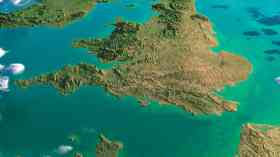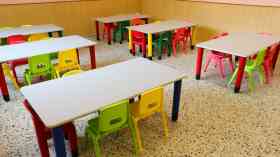
Sustainability and wellbeing for school trips
When school budgets are squeezed, it’s important to get the most from any money spent. Outdoor education trips are an investment that can repay you many times over when measured against educational, sustainability and wellbeing targets, writes the Field Studies Council.
Student mental health and looming sustainability targets are just two of the many pressing issues facing school leaders, so it would be easy to overlook the huge impact the humble field trip can have on both.
It’s long been known that outdoor education enriches learning experiences and academic success as well as supporting physical and mental health by fostering a deep connection with nature and the environment.
As well as all this, getting your pupils outside for some hands-on learning can help you meet your sustainability targets as well.
When school budgets are squeezed, it’s important to get the most from any money spent. Outdoor education trips are an investment that can repay you many times over when measured against educational, sustainability and wellbeing targets.
Climate targets
The Department for Education wants all education settings to have a climate action plan in place by 2025, showing the steps they will take to address climate change, promote sustainability and foster environmental stewardship.
Plans should include things like an initial assessment of current carbon and environmental impacts and clear measurable goals in areas such as improving energy consumption, waste reduction, increasing recycling, promoting food sustainability, greener travel and enhancing biodiversity.
Schools are also expected to show how they intend to integrate environmental learning into all aspects of the curriculum and how they can improve opportunities for students to access and connect with the natural world.
The Field Studies Council, the UK’s leading environmental education charity, is one of the key organisations working to help schools achieve their sustainability targets while boosting the mental and physical wellbeing of pupils.
Jo Harris, education manager for the charity, said: “From our experience, engaging young people with the need to tackle the causes and effects of climate change isn’t an issue. Young people themselves often drive the changes needed as they recognise the need to safeguard the environment they live in.
“Environmental education – hands-on, practical and real-world experiences of geography, biology, and other subjects they study in the classroom – gives young people the tools to use their enthusiasm and engagement to create real change.
“Since 2012, we at the Field Studies Council have cut our own carbon emissions by 75 per cent. In 2019 we launched an ambitious plan which included measures such as switching to greener energy sources, improving the efficiency of buildings and reducing travel.
“Pupils who stay with us for a residential visit not only reinforce their academic learning, they return to the classroom brimming with practical ways to make a change after seeing the small simple steps working in practice.”
Sustainable meals
One of the main areas in which schools can improve their sustainability while simultaneously looking after the wellbeing of pupils is food. Healthy, nutritious and filling meals are vital to support pupils’ learning and physical and mental development, and sustainability should be one of the key considerations when planning school meals.
The cost of living crisis means many parents aren’t able to give their children the best nutrition, but there are steps schools can take to help bridge the gap.
The Fields Studies Council, for example, now prioritises sustainable meat and seafood and provides an exclusively vegetarian or plant-based menu one day each week.
Scrutinising where food for the education centres comes from has also helped reduce food miles and the charity’s carbon footprint.
It has also banned single use plastics in kitchens and dining halls and recycles used cooking oil into biodiesel. Careful monitoring and portion control has reduced food waste, and any waste that is created now goes to a specialist collection service instead of landfill.
Students have been happy to accept these changes once the reasoning behind them is explained, and they are all changes that schools can implement themselves. Experts from the Field Studies Council are happy to work with schools to provide advice on how to get started.
Trips in the fresh air
The Field Studies Council has been providing residential and day trips for primary and secondary school pupils for more than 80 years from its network of centres around the UK.
As well as being a leading voice on environmental issues, the charity has long championed the value of outdoor residential learning as part of education and will continue to lobby for it to be firmly embedded in the curriculum as part of the current review.
All pupils benefit from hands-on real-world experience to back up their academic lessons. Outdoor learning helps develop problem-solving and critical thinking skills, as well as resilience. A residential trip might be the first experience a young person has of being away from home, allowing them to learn independence in a safe environment.
Field trips encourage curiosity and exploration, allowing pupils to gain a deeper understanding of the curriculum than they would in the classroom. Practical learning also helps pupils who struggle to focus in a classroom to find a connection with the subject matter, and it helps students to see how all areas of the curriculum – science, humanities, language, history, numeracy, literacy and even PE – are linked in the real world.
The physical health benefits of being active and outdoors are well-known, but outdoor learning brings many more psychological benefits as well.
There is evidence that lessons learned outdoors are retained longer, helping to boost academic performance. Learning new skills also improves confidence, while having to tackle problems both individually and as part of a group helps with resilience, decision making, risk management and leadership skills.
Engaging with nature has also been shown to have a measurable effect on stress levels, reducing anxiety and depression and boosting an overall sense of wellbeing.
Mindfulness
Many young people live in chaotic environments full of noise and stimuli, especially when digital overload is added into the mix. When there is little time for mindfulness, spending time in nature is an opportunity to switch off from the noise and relax in a calm, peaceful environment, allowing the body and mind to live in the moment for a short time.
Connecting with nature on a practical level also helps students to understand the need to tackle climate change in a far more meaningful way than they would from reading a book or watching a documentary. If pupils can see how the environment relates to them, they will be more invested in looking after it. We cannot overlook the very real need for young people to develop relevant fieldwork techniques which will enable them to apply for jobs and succeed in the environmental sector.
It is easy to ditch field trips when money is tight but getting your pupils outside could be one of the soundest budget decisions you make, and the payback in terms of mental health, academic and sustainability gains will be more than worth it.
Further Information:Latest News
19/12/2025 - 09:54
The Education Committee has expanded its ongoing inquiry into the early years sector to examine how safeguarding can be strengthened in early years settings.
18/12/2025 - 09:25
The UK will be rejoining the Erasmus programme in 2027, following a package of agreements with the EU.
17/12/2025 - 09:31
Ofqual has fined exam board Pearson more than £2 million in total for serious breaches in three separate cases between 2019 and 2023 which collectively affected tens of thousands of students.
16/12/2025 - 09:19
The average funding rates will increase by 4.3% for under 2s, and by almost 5% for 3-and-4-year-olds.
15/12/2025 - 10:30
Local colleges are set to receive £570 million in government funding to expand training facilities in areas such as construction and engineering.







